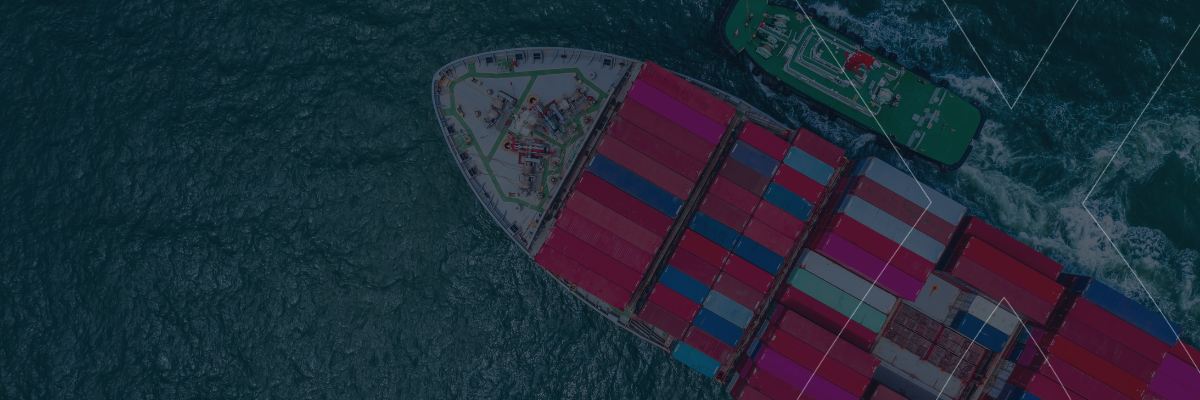Unleash the power of international trade and expand your horizons with our comprehensive guide. Whether you’re a seasoned pro or a curious newcomer, we can equip you with the knowledge and strategies to navigate the exciting world of imports, exports, and Incoterms like a champion.
Understanding Incoterms | The Key to Simplified Global Logistics
Incoterms are the lifeblood of international trade. Short for International Commercial Terms, Incoterms are a set of globally recognized rules established by the International Chamber of Commerce (ICC) to clarify the responsibilities of all stakeholders in international trade transactions. They define who is responsible for what at each stage of the journey and outline where the risk transfer takes place.
Think of them as a common language for international business, reducing confusion and avoiding costly disputes. They clarify everything from who pays for transportation to who handles customs clearance.
By clearly defining responsibilities, Incoterms prevent misunderstandings and disagreements between buyers and sellers. Everyone knows who’s doing what, making trade negotiations smoother and reducing the risk of legal battles.
Incoterms define who bears the risk of damage or loss to the goods during transportation. This helps both parties understand and manage their potential liabilities.
Incoterms promote consistency and cooperation in international trade as a set of internationally recognized rules. This simplifies cross-border transactions and fosters efficient global trade.

Examples of incoterms range from Free Carrier (FCA) and Carriage Paid To (CPT), which can apply to any mode of transport, to Free On Board (FOB), and Cost, Insurance, and Freight (CIF), which are specifically for sea and inland waterways.
With the Free on Board (FOB), the seller bears all responsibility, risk, and costs associated with the goods until they are safely loaded onto the buyer’s designated vessel, at which point ownership, all liabilities, and expenses shift to the buyer.
Each of the incoterms has three main areas of responsibility: the seller’s obligation, the buyer’s obligation, and the transfer of risk. This helps to clearly define where each stakeholder’s responsibility begins and ends and exactly at which point the transfer happens. For example, the term Free on Board (FOB), the seller’s obligation starts at the factory or warehouse until the shipment is on board, where the risk transfer occurs. From this point, the responsibility is on the buyer, to the buyer’s warehouse.
Navigating the complex world of international trade with any measure of success necessitates a clear understanding of “buyer” versus “seller/freight” and their impact on responsibility.
One of the key pressure points here is where the buyer and freight terms overlap since stakeholders often don’t fully understand where one ends and another begins. This results in extra costs and unchecked risk. At this point, a trade expert is best equipped to advise and guide you on the option that best mitigates the risks or to take on the risks on your behalf.
How to Decide Which Incoterm Is Best for You
Selecting the right Incoterm for your international trade can feel like navigating a maze.
To find the perfect fit, consider these key factors:
Your Role
- Seller: Minimize your obligations and costs by choosing Incoterms like EXW, where the buyer takes over at your location.
- Buyer: Prioritize convenience with Incoterms like DDP.
Your Goods
- Type: Some items might require specific handling, influencing your Incoterm choice.
- Value: High-value goods may benefit from insurance coverage offered by certain Incoterms.
Your Transport
- Mode: Air, sea, or land each have unique risks and formalities, so choose an Incoterm that aligns with your selected mode.
Your Experience
- Amateur: Opt for simpler Incoterm such as DDP, minimizing your involvement. However, it’s essential to understand your remaining responsibility when you do so.
- Professional: Negotiate more complex Incoterms like DAP based on your comfort and risk tolerance. This is particularly relevant for high-value shipments as risk tolerance is significantly reduced.
Your Partner
- Discuss and negotiate control, cost, and risk allocation with your trading partner to find a mutually beneficial Incoterm. However, always consider that all parties will have their interests at heart.
Details to Remember:
- To put your considerations first, seek professional advice if needed. Experienced teams such as TecEx are best equipped to help you navigate global trade and incoterms. Discuss your Incoterm with one of our trade experts.
- Familiarize yourself with Incoterms.
- Analyze potential risks and costs associated with different Incoterms. If you have a preferred Incoterm, such as DDP, you can find a service provider to work with you to ensure your preferred term.
- Choosing the right Incoterm balances control, risk, and cost for smooth and efficient international trade. Carefully evaluate your situation and negotiate effectively to find the perfect fit!
Learn more about the fundamentals of Incoterms.
The Consequences of Incorrect Incoterms for Major Shipping Routes of The World
Though fundamental to navigating the complexities of global commerce, buyers and sellers often underestimate their significance, potentially impacting trade deals in profound ways.
Here are a few ways incoterms impact trade deals:
Clarify Responsibilities
Incoterms define who is responsible for what at each shipment stage, from packing and loading the goods to obtaining export licenses and handling customs clearance. This clarity prevents misunderstandings and disputes down the line.
Each Incoterm Rule Specifies Responsibilities, for Example:
FOB Seller: Packing, export documentation, export clearance, delivering goods on board the buyer’s nominated vessel at the named port of shipment.
FOB Buyer: Import license, international freight, customs clearance, onward carriage costs from the named port of shipment.
Reduce Risks
By designating who bears the risk of loss or damage at different points in the journey. Each Incoterm specifies the point at which ownership and risk of damage or loss of the goods transfer from the seller to the buyer. This allows both parties to manage their risk exposure effectively. For example, under EXW (Ex Works), the seller’s responsibility ends when the goods are available at their premises. From there, the buyer shoulders the risk of damage or loss. But more on that later.
It’s important to note that the coverage of the freight provider is only for the international leg of the shipment. This means that the shipper will not be covered using EXW from pick up to loading on ship and from off-loading of ship to delivery. Without a partner such as TecEx, sellers expose themselves to unnecessary risks if the buyer selects this incoterm.
Enhance Trust
By reducing ambiguity and establishing a common language for international trade, Incoterms foster trust and cooperation between buyers and sellers. This helps build stronger relationships and facilitates smoother transactions.
Incoterms Can Indirectly Impact Other Aspects of the Deal, Such As:
Pricing: The chosen Incoterm affects the seller’s pricing strategy by determining the costs they need to include.
Delivery times: Different Incoterms have different delivery points, which can affect lead times.
Mode of transport: Some Incoterms are specific to certain modes of transportation, which can influence the available options for shipping.
Cost Clarity
Incoterms specify who bears specific costs, such as transportation, insurance, and customs duties. This transparency allows both parties to calculate their respective costs accurately and factor them into pricing negotiations.
Knowing who’s responsible for costs avoids confusion and potential renegotiations later.
Double payment in freight due to overlapping Incoterms can also be a costly and inconvenient pitfall in international trade. This occurs when both the seller and buyer, unknowingly or misinterpreting their responsibilities under their chosen Incoterms, end up paying for the same transportation or related service (e.g., customs clearance).
Common Scenarios of Double Payment Include:
FOB and DDP overlap: Seller delivers goods FOB while the buyer assumes responsibility for transportation is DDP. Double payment can occur if both parties arrange and pay the origin country’s costs.
The implications of incorrectly listing the incoterms include financial losses, delays, disruptions, and damaged relationships. These can be mitigated with strategies utilizing clear communication, understanding incoterms, professional guidance, and contractual clarity.
Are you worried about duplicate costs?
Risk Management and the Transfer of Responsibility
Incoterms form part of the fundamental risk management strategies developed for cross-border trade.
Improper risk management in global trade leaves businesses open to various risks. These risks include IOR risks, financial liability, compliance hurdles, operational mishaps, the risk of delays, and procurement model functionality.
To understand the full extent of these risks, click here.
Why Choose to Partner with a Trade Expert?
In the high-pressure world of tech, international shipping shouldn’t be a white-knuckle ride. Complexities, risks, and finger-pointing can debilitate your supply chain and profitability.
Selecting the wrong Incoterm can lead to cost overruns, liability issues, and logistical snags. It is imperative you understand the potential risks and costs associated with each incoterm option and make informed decisions that minimize risk and optimize your trade expenses.
Benefits of Partnering with a Trade Expert
- Expert Guidance: Seasoned professionals analyze your needs and recommend the perfect Incoterm for your tech supply chain.
- Holistic Approach: Consideration will be given to various factors, from your role and goods to desired control and trade routes, ensuring the chosen Incoterm aligns with your best interests.
- Negotiation Support: You will be guided through negotiations with distributors, confidently advocating for the most advantageous Incoterm.
- Financial and Compliance Burden Relief: Let an expert handle the complex calculation of duties and taxes, perform customs clearance, and everything in between, allowing you to focus on your core business.
- Global Reach: Navigate complex regions like Latin America and Central America, simplifying your global expansion.
Don’t settle for incoterms confusion and supply chain stress.
Contact TecEx today and become a global tech leader with confidence. Our solution is entirely customizable to your needs, and support will be ongoing – get in touch with one of our experts.

